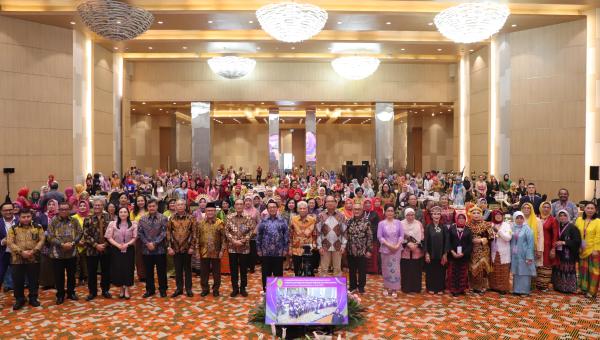Unlocking Innovations in Judicial Systems
Unlocking Innovations in Judicial Systems
In Asia Pacific, access to justice remains elusive for many citizens, particularly disadvantaged groups such as marginalized communities and people with disabilities. Amidst global decline in the rule of law and widening justice gaps, judicial systems in the region often face challenges, highlighting the need to eliminate barriers and enhance access to justice services.
People-centred approach needed
Against this backdrop, In Thailand, the Court of Justice, in collaboration with the Thailand Institute of Justice, Lukkid Group, and UNDP, launched the groundbreaking "Justice by Design" initiative in 2023. As part of the Judicial Integrity Network in ASEAN project, this pioneering project harnessed the power of design thinking and people-centred justice methodologies to reimagine judicial services, rendering them more accessible, efficient, and inclusive. The project is based on the premise that hat enhancing the responsiveness and transparency of courts will foster increased integrity within the judicial system, ultimately better serving the needs of the people.
Recognizing the potential for broader impact, the organizers proposed a two-day knowledge exchange. This collaborative event aimed to disseminate the transformative experience of Justice by Design and empower other countries to adopt and implement design thinking within their own judicial frameworks. By participating in this exchange, the audience becomes part of a regional effort to improve judicial systems, fostering a sense of inclusion and shared responsibility.

At the heart of this event was the unique opportunity to learn from the Justice by Design initiative. The workshop facilitated exchanges of experiences and lessons learned from this groundbreaking initiative, including the challenges overcome and the innovative solutions developed.
Participants were equipped with a comprehensive understanding of design thinking and people-centred justice principles and their application in the judicial context through knowledge transfer. The gathering included hands-on training sessions on key design thinking tools and techniques. These practical sessions were specifically designed to equip participants with skills that could be immediately applied in their home countries, thereby enhancing the effectiveness of their judicial systems.
The two-day event, held in Bangkok on March 20 and 21, was chaired by Honourable Krai Aranyarat, Judge of the Office of the President of the Supreme Court. It brought together judges from Lao PDR alongside representatives from thirteen other countries, aiming to promote collaboration by fostering networking opportunities and establishing a regional community of practice focused on design thinking for judicial reform.

The Workshop
The event kicked off with an overview of the Justice by Design initiative by Honourable Krai Aranyarat and May Sripatanaskul, CEO of Lukkid. Their presentation showed how the initiative has established a fresh paradigm for reshaping public services in Thailand, serving as an inspiration for other public institutions to adopt innovative approaches to service delivery. Through citizen involvement and the adoption of design thinking, the Court of Justice has made significant strides in increasing the accessibility and user-friendliness of the judicial system. Particularly, the Justice by Design participants shared the projects they were involved in, the insights they acquired throughout the process, and how they were utilized to formulate recommendations for redesigning court services. From solutions to creating an accessible website for all and reducing the digital gap to ideas for simplifying the inheritance process and overcoming the lack of legal knowledge, the participants shared their journey in helping the judiciary make court services accessible for all and leave no one behind.

The following sessions delved into the practical applications of design thinking within the judiciary, with participants sharing their experiences and insights on overcoming challenges such as the digital gap and legal knowledge barriers. Honourable Yi-Yi Lee from R.O.C. Taiwan and Honourable Khamphay Xayasouk from the Supreme Court of Lao PDR provided valuable perspectives on adopting people-centred approaches within their respective judiciaries.
The event's second day focused on formulating action plans for adapting and replicating the Justice by Design initiative in other jurisdictions. Facilitated by Fern Sawetamal from the Thailand Institute of Justice, participants developed strategic plans to implement and disseminate the initiative in their respective judiciaries effectively.

Conclusion and next steps
The event concluded with a visit to the Civil Court, offering participants a firsthand look at how the court handles online sales transaction cases. It was yet another example of an adaptive and responsive justice sector, where the court recognised a growing problem of online sales fraud and adapted its services to ensure people have access to court services.
The two-day knowledge exchange, supported by the Bureau of International Narcotics and Law Enforcement Affairs (INL) and the U.S. Department of State, facilitated valuable discussions and collaborations, paving the way for sustained progress and innovation in judicial reform efforts across the region. Building on the success of the knowledge exchange, UNDP country offices, particularly in Lao PDR, will support judiciaries in adapting and replicating similar initiatives to improve citizen's access to justice and enhance judicial integrity.
Browse photos from the event here.

 Locations
Locations




